- Home
- Douglas Clegg
The Priest of Blood Page 3
The Priest of Blood Read online
Page 3
She told us on one occasion a tale of the True Bride, which made sense to me even while I did not entirely understand it.
“So the maiden went to live in the great castle, and married in the church the handsome prince. When the moon waxed, she would return to garden in the moonlight. She would stand beneath the pear tree and call to the golden bird. Soon enough, the bird would fly down from the sky, carrying in its beak her silver wedding dress. And she would wear this at night, for those who came to her knew that she was the True Bride. But when the prince’s father, the king, returned to his home after many years at war, he did not like his son’s choice of wife. So he had brigands tie her and put her in a great cauldron. This he sealed, and bade them throw it into the deepest pit they could find. Then he went to his son, the prince, and told him that his wife had been unfaithful. He brought another maiden to him, this one rich, and lazy, and spiteful. She would glance at a person and judge him without thinking twice. When the prince, after many years of waiting for his bride to return, finally agreed to marry her, she became more demanding of him, and of the entire kingdom. But we should not hate her. She was from another land, and she missed her people. Still, she caused much heartache and only some good. Her jealousy enflamed, she would have her husband declare war on his neighbors. She punished the strong and just, and rewarded the weak and vain.
“One night, the prince, now king, went to his garden, so beloved by his first bride. He remembered how she had called the bird, and he did the same, for he missed his true love. When the bird came, down from the silver moonlight, it brought with it the silver dress in its beak, as well as a diadem of gold. The bird told the king of what his father had done, how his first wife had begged for her life, and, feeling pity, the brigands released her but swore that she would die if she ever left the Great Forest. The king was inconsolable, but the bird told him that he must have faith. ‘Keep the gown and the diadem, for she will return when her strength is in her. Remain with your new wife, but when the time is right, you will see your True Bride again. She will come from the Great Forest, so you must protect it and its creatures. And when she comes, bring out the silver gown and the diadem, and embrace her and celebrate the True Bride when you see her.’
“And so, one day, when the king was very old, and his second wife had died of a fit of anger and bitterness, he stood in the field and saw the True Bride step out of the woods, naked and beautiful. On her forehead was a crescent moon. On her arms and fingers, the secret gems of the Earth. She was as young as she had been when he had last seen her, and although he barely recognized her because of the years that had passed for him, and his memory had waned like the moon, still he welcomed her with warmth and love. He gave her the silver gown and diadem, and she clothed herself in these. She had no anger for his father, who had betrayed her, nor for him for taking a second bride. Together they returned to the castle, for the time had come for the True Bride to take her place with the king of men.”
None of us understood this strange tale, but Mere Morwenna looked at each of us, deeply, to see if we had pictured it in our heads. Had we? Yes. “Good,” she said. “The Forest stories need to live. For just like that king, you each will need to recognize the True Bride when she returns to the world of men. She is hidden now, but she will return, and you need to have her clothes and crown at hand.”
I was too ignorant of my own homeland to know that the True Bride she spoke of was the worship of the goddess of Nature herself, gone into hiding in the Great Forest when the new god had invaded and sought to destroy her.
The Great Forest’s trees were ancient oak, but even between these were a jungle of other trees and plants such that it seemed always green, even in the depth of winter. If I chanced upon a salamander along one of its streams, as a child, I imagined it as a faerie cursed by a sorceress; and a hedgehog might be a princeling that had not been pure enough to cross the lake of gold or fire. It was a place of imagination, wonder, and danger, and the source that sustained us through hardship.
Once, when my older sister and I went hunting for berries in the wood (knowing that we risked punishment of the most extreme kind if caught by any authority), we came across what looked to me like part of a ruined castle. It was covered with vines, its stones interlaced with fern that grew from it at strange angles, and I entered through its little doorway. Although a mess of mud and brambles met me within, I saw the roof of it—a dome-shaped place, with faint paintings upon it of naked women who danced among strange beasts with heads like eagles, hindquarters like lions, and the wings of dragons. My older sister Annik told me that we should leave this place, for it was an ancient one, of the Old Ways, of the ways of the Devil.
4
Beasts were my childhood companions, outside of my grandfather.
My first loves were the dogs, great wolfhound mutts that were the extra coverings on winter nights between and among my brothers and me. My second loves were the birds of the air. My grandfather often led me to the edge of the Forest to teach me birdcalls, and the names of each winged creature, how to find a falcon in its nest, how to raise it from the egg and teach it to hunt for you; how to train a raven to speak several words, although I never completely mastered this. My grandfather kept doves, both for food and for companionship, and I remember him best standing on a rock at the edge of a long meadow, the white wings of his birds flapping along his arms and above his head as if they might take him to Heaven.
Of all the children, I was the only one who took to birds.
There were six of us, plus two girls who were babies by the time I left my family.
You must know of the place birds had in our lives then, for they were as important as our eyes in many ways. Goshawks and falcons were hard to come by, and hard to train, and knights throughout Christendom demanded falconers to travel with hunting parties. It was said that the Duke of Brittany had a hundred falcons for his hunt; our local baron had few. But none of this mattered to me as a boy, for I took to birds, and soon enough learned how to capture a newly hatched falcon from the nest without its mother tearing at me with her piercing talons and beak. My grandfather taught me much of this. He had learned the lore of the birds and of falconry in distant lands during wartime. I suppose that, as a boy, I aspired to greatness, beyond my natural station in life, because of my interest in falconry, for poor boys were poor hunters, and the great birds of prey were meant for nobility.
I had my eye on the baron’s household from an early age—I wanted the horizon beyond the mud that was to be my inheritance. What blood I had within me was the blood of a scrappy, dirty, undisciplined, and selfish boy, an inheritance from a long line of the scrappy, dirty, undisciplined, and selfish. But I wanted more than the dirt and the marsh and the woods. I wanted all the world could offer, for I saw it daily in the great castle upon the hillside. I wanted to know the inside of that place. I wanted to watch the nobility of the world, the knights and ladies, the great halls and the kitchens full of meat and bread.
My grandfather fueled these fantasies of mine to some extent. He was a tall, spindly man, unusual for a Breton, with hair white as the marsh and a nose that hooked like a falcon’s beak. His eyes were warm and bright as a hearth fire, and my earliest memories of him were of his shadow, which sat beside me as I slept among my brothers. As I grew a bit, I sought him out to hear his tales of the past and of the days when the Great Forest covered the entire world—when birds spoke, when trees held treasures, and when the moon itself was a stag that crossed the night stars. Some of the elders of my childhood visited him for wisdom, for he was eldest among them and knew both the lore of the wood and field and that of the castle.
He often told me stories when I lay down to sleep at night, on straw that crawled with lice in winter, with my younger brothers close by me, nestled in each other’s arms like cherubim.
“Once, many years ago, we owned land, to the south, down at the great mountains,” my grandfather told us. “We are descendants of a most royal family, lost
to misfortune, having crossed the sea to come to this rocky land. A woman, heavy with child, whose man had died in another land, brought up the grandfather of my grandfather’s grandfather, and kept secret the lineage. But we were once, our folk, greater than even the duke. Greater, I tell you, than the kings of men. And we may be great again. You, you Aleric, you boy of birds and hounds, may one day rule this land. You have a talent for what nobility craves, and even when you hunt down a rabbit or rat, I see the mix of your ancestral blood in you. Royal blood runs like gold beneath your skin.” He might grasp my small arm and hold it up to candlelight. “Do you see the blue there? Beneath your skin? That is the blue of nobility. We are meant for this. You are destined for great things, grandson.”
“I can be king?”
“King or prince,” he said. “You have the bloodline in you. Do you not talk to birds? And understand their language?”
I laughed when he said this, for I did know the language of birds, although it was not magickal in any sense. My grandfather took me out in the spring to take eggs from the nests, and taught me to keep them beneath the pit of my arm, using a sling, to warm the eggs. When they hatched, days later, we would feed them with a worm cut and impaled upon a twig, thrust into the baby birds’ throats. My grandfather taught me in this way to train birds of all kinds, and they would follow us as we went about our day—whether geese or dove, raven or falcon. These last were forbidden to us to raise, by order of the baron, for he and his huntsman were to own all falcons and goshawks. Because my grandfather gave well-trained falcons to the baron’s household, he was never prevented from capturing and raising the birds himself.
“In my grandfather’s day, all was different,” he told me, while we taught a young falcon maneuvers of the hunt with me crouching low to imitate a rabbit (and sometimes being cut by a young bird’s too-sharp talons!) “Folk came to him for the secrets of the earth and sky. You have his face, you know. You do. You have the pale skin and the rosy glow and the smile of him. He could read the leaves, which foretold the end of the Forest’s strength. He knew by the flight of sparrows where the storm might begin in the sky, and how soon it might arrive for us. He was a remarkable man.”
“And my father?” I asked.
His eyes grew shadowed. “The fisherman?”
“My real father,” I said. “The one who has gone away forever.”
“A scholar,” my grandfather told me. “From distant lands, and to them he returned.” The cloud had not left his face, and when I tried to speak more of my birth father, he would return the subject to his grandfather, or to my mother as a girl when she “looked like the spring itself, bedecked with garlands of wildflowers, and riding a wild horse along the marsh as if she were a Briary Maiden. And me, her father, proud of her, happy that she had so much life in her. Ah.” Sunlight seemed to shine across his face as he spoke. “You must never grow unkind to your mother,” he warned, shaking a finger at me, his eyes squinting as if searching my face for any sign of disagreement. “She has suffered much, and has done much, despite what it may seem. She saved my life once and paid a terrible price for it.”
But I wanted to talk of more exciting things. How I wish I could go back and beg him to tell me more of my mother’s past, of the young woman I never knew who might have paid such a price that it had changed her forever, from a beautiful maiden on a horse to a wanton among the fields with children all around and begging for bread daily.
I grabbed him around the collar and told him he was the most wonderful grandfather in the world. He, in turn, embraced me, holding me so close that I could feel his tears on my neck. “We are born to this world to find our destiny, my dear boy. You are of the bloodline of the Great Forest, and of those who knew of its gifts before even the Romans came to this land. No matter what misery the world offers you, do not let go of that love you have now. Do not let go of all that you were born to do. All is good and bad. There is no one or the other. You must look at the bad and see the good in it. And when you see the good, do not forget that it contains the bad, as well. Do you understand?”
I murmured that I did, though I did not then have the experience to comprehend what he told me.
“All that is good has bad in it. And if you forget this, you will feel betrayed when you should merely have understood the nature of the world.”
I drew back from him, smiling.
I recall how much my love for him shone above all other loves. Every crag of that face, every white hair on his head, the way a knot at his throat bobbed up and down when he spoke. I could live in the mud and the cold, put up with my mother’s darkness, which erupted now and then, so long as I could be with this old man whose wisdom and warmth raised me up and held me aloft, above all that threatened to drag me under.
“You were once a king,” I said.
“Not a king,” he corrected. “Not in the way you think of kings. I served a greater being than any king could offer. As did my father, and my grandfather. What we once did...” He leaned forward and kissed me on the forehead. “Once upon a time, in the long ago. That world is gone. The wind has taken it to sea.” A jewel of a tear arose at the edge of his eye. “Gone. But you, you are from a great bloodline. Magnificent. That you must never forget. We are children of this Forest. We planted these trees, and our souls remain here.”
It was a fabulous history of our clan, and no one believed it, but he clung to it, and I dreamed from it. He spun it like a spider’s web for me. I suppose that’s where I got my hunger for better things, for a finer life. Why the stink of the pigsty and the smell of the rotting fruit in the orchard vexed me. The disgusting gust of befouled odor that accompanied the fisherman’s trade when my stepfather returned from his distant journeys. After months of being away, he would arrive with the chilly rains, his eyes as round and empty as a halibut’s, his mustache like a carp’s, the malodorous stench of gutted fish on his rough hands. That life had never held any allure for me.
But I knew of that other world, and it might have been out of reach, but early in life, I determined that I would grasp it. While my grandfather lived, I held the dream of happiness. I overlooked my mother’s ways. I sometimes saw her as a faerie princess who bestowed wishes upon wild men.
I spent so much time with my grandfather that I soon forgot all other duties. We would train the birds. Teach the ravens to speak. Gather up the eggs in spring and keep them warm in various ways so that the hatchlings would follow us. He sold them to the baron and to the abbey in exchange for food. The geese of the abbey honked their greeting whenever my grandfather and I came onto the grounds with new hatchlings.
When I imagine the boy that I was, I remember the smell of mud, the grass-stained tunic, the scalp that itched, and yet none of these troubled me. For my grandfather and his birds lifted me to the heavens. I flew with them above all my troubles.
We walked along the path at the edge of the marsh, me running ahead in the exuberance of childhood, while he hobbled along, leaning into a long branch of a tree he’d carved to help him walk. He led me to a great oak that was dead and yet stood thick and tall near a gushing, clear stream. A falcon I had trained the previous winter perched on my shoulder, digging into the leather pad wound there just for protection.
Grandfather had wanted to show me something, and had promised all winter to take me to a particular spot in the Forest “where the treasure grows.”
At the tree, he stood upon his toes and pulled away the roots of some thick vines. He lifted me up so that I could see what he had found.
“Put your hand inside it,” he told me.
In front of my face, a knot in the oak.
I reached in, my hand nearly too large to make it through the small hole. I felt around, and there was a smooth stone. I drew it out.
I opened my hand to look at it as he lowered me to the ground. I noticed then that he was out of breath, and began to worry that I had tired him.
The stone was a deep blue, but pale and broken at its center, and amb
er seemed to blossom within it.
Taking deep breaths, my grandfather said, “I told you once of your bloodline. This is a sign of it.”
“You must not speak,” I said. “You are tired. We can rest. I can bring water.”
“No,” he said. “Just sit beside me.”
He patted the fern-covered ground to his left, and I plopped down, eager to hear a new tale. He cradled me with his arm. He took the stone from me.
“It is worth little now,” he said. “But it once was a sign of our family. Before the invaders, our blood ran in the veins of these woods. My grandfather’s grandfather’s grandfather planted this tree. In those days, there was no abbey. No church. We are now the vanquished. But you must never forget who we were, for it is in your blood to be more than what this world has forced upon you. And what your true father has done.”
“My father?” I asked, but when his breathing became labored again, I begged him to rest a bit before speaking.
But he would not. “My birds are the last of my own childhood. They will fly away. But you will remember this day, won’t you, Aleric? You will remember me?”
“Always,” I said, and I took his hand in mine and leaned over to kiss it. “But you won’t ever leave.” How young I was to say such things! How ignorant of the pulse of life itself! For, surely, the old man was past the years of hope for life and had managed to survive merely from luck and his love for his family. I could not know then of the disease that had begun to ravage him a few years earlier. That his breathing and his complaints of soreness of old wounds had all been part of the beginning of his demise.

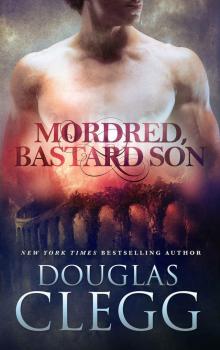 Mordred, Bastard Son
Mordred, Bastard Son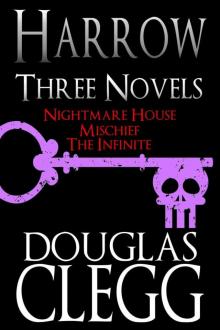 Harrow: Three Novels (Nightmare House, Mischief, The Infinite)
Harrow: Three Novels (Nightmare House, Mischief, The Infinite)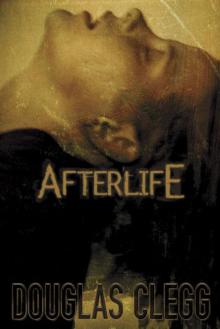 Afterlife
Afterlife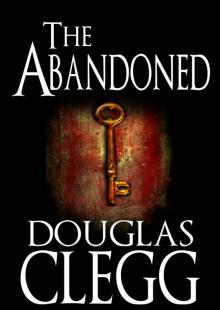 The Abandoned - A Horror Novel (Thriller, Supernatural), #4 of Harrow (The Harrow Haunting Series)
The Abandoned - A Horror Novel (Thriller, Supernatural), #4 of Harrow (The Harrow Haunting Series)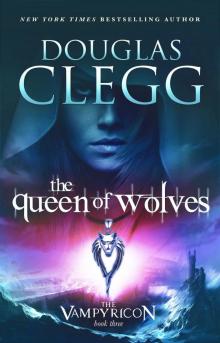 The Queen of Wolves
The Queen of Wolves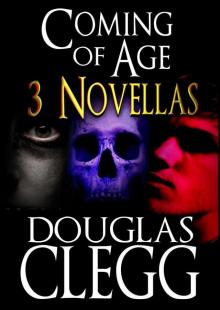 Coming of Age: Three Novellas (Dark Suspense, Gothic Thriller, Supernatural Horror)
Coming of Age: Three Novellas (Dark Suspense, Gothic Thriller, Supernatural Horror)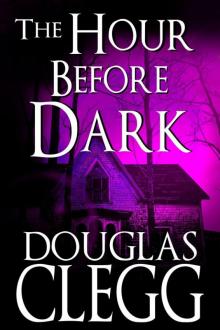 The Hour Before Dark
The Hour Before Dark Isis
Isis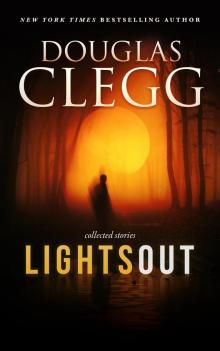 Lights Out
Lights Out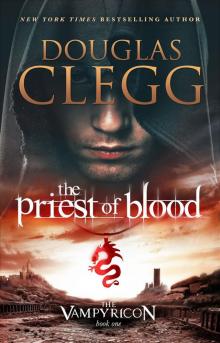 The Priest of Blood
The Priest of Blood Criminally Insane: The Series (Bad Karma, Red Angel, Night Cage Omnibus) (The Criminally Insane Series)
Criminally Insane: The Series (Bad Karma, Red Angel, Night Cage Omnibus) (The Criminally Insane Series)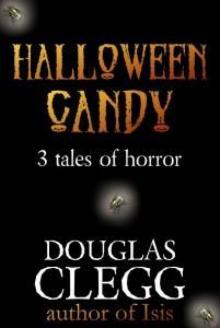 Halloween Candy
Halloween Candy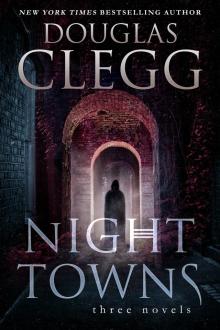 Nights Towns: Three Novels, a Box Set
Nights Towns: Three Novels, a Box Set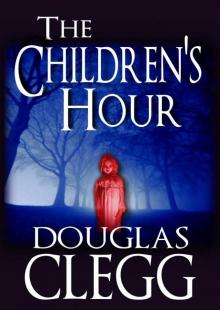 The Children's Hour - A Novel of Horror (Vampires, Supernatural Thriller)
The Children's Hour - A Novel of Horror (Vampires, Supernatural Thriller)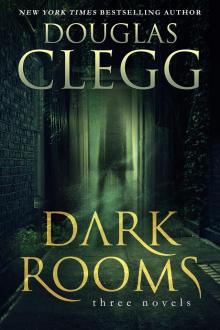 Dark Rooms: Three Novels
Dark Rooms: Three Novels![[Criminally Insane 01.0] Bad Karma Read online](http://i1.bookreadfree.com/i2/04/10/criminally_insane_01_0_bad_karma_preview.jpg) [Criminally Insane 01.0] Bad Karma
[Criminally Insane 01.0] Bad Karma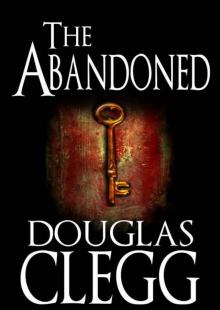 The Abandoned - A Horror Novel (Horror, Thriller, Supernatural) (The Harrow Haunting Series)
The Abandoned - A Horror Novel (Horror, Thriller, Supernatural) (The Harrow Haunting Series)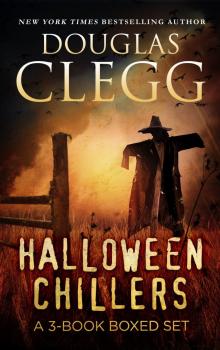 Halloween Chillers: A Box Set of Three Books of Horror & Suspense
Halloween Chillers: A Box Set of Three Books of Horror & Suspense